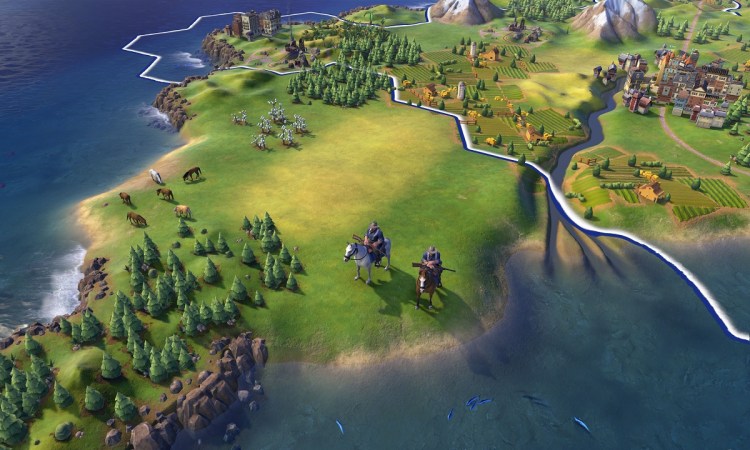
Above: Warhammer 40000: Dawn of War III
Diplomatic victory
Many of the strategy games in this new wave are also based on some of the most storied IP in gaming. Wargaming.net hopes to bring Master of Orion’s sheer ambition and complexity to 2016 with their remake without changing what made the original game great. This is where working within the framework of an existing franchise can be limiting.
“Because the game has to appeal to as many of the players of the original series as possible, each of whom has a different idea of what made the game great, we have to stick as closely as we can to the original story, aesthetics, and features of the legendary games,” Wargaming.net’s director of product vision Chris Keeling explains. “On the other hand, to expand the audience enough to bring in more new players, both those who never heard of the game or genre and our “older selves” who no longer have the free time we had 20-plus years ago, the game has to be more approachable, with simpler interfaces, faster gameplay, and more understandable mechanics. Balancing these opposing forces results in about 5-10 percent of players telling us we’re not enough like the original, and another 5-10% saying that we’re too much like the original.” Ultimately, though, the bottom line is for them to make a great game that most people will be happy with. “This means that about 80-90 percent of the players are perfectly happy with the balance, as we are, and that is exactly what we’re after.”
Perhaps the highest profile brand in this resurgence, though, is Warhammer, with Total War: Warhammer released by Creative Assembly and Warhammer 40,000: Dawn of War 3 coming soon from Relic. Games Workshop’s Warhammer lines have been the most popular tabletop strategy games on the market for decades now, so converting that to a PC strategy game seems like a no brainer.
According to Simpson, it’s a pretty painless conversion, but the sheer breadth of the Warhammer lore is a big challenge to tackle: “In a way making, Warhammer has been no different to making an historical game. We start with detailed research and a strong drive to make it as authentic as possible. The fact that Games Workshop have been adding content to the Warhammer world for decades does give us one problem – there is just so much of it, both in the sheer quantity of different factions and units, but also in the variety of shapes and sizes of them.”
The Warhammer world also brings with it another big problem that historical iterations of Total War didn’t: cost. “I was recently browsing through work estimates for various units. I noticed that the first pass estimate for the cost of animating the war hydra locomotion was around $50,000. That’s about 100 times more than locomotion for a typical historical TW ‘man with spear and shield’ which would take just a couple of hours in the mo-cap studio.”
Relic’s Dawn of War 3 required slightly more drastic measures, though, as its real-time strategy saturated gameplay clashes with the turn-based nature of the minis game. Again, we hear a familiar refrain from Relic game director Philippe Boulle: quality and reverence.
“The thing to remember is that the Dawn of War franchise isn’t an attempt to reproduce the tabletop game; it’s about bringing the fantasy 40K to life. The amazing artwork and epic stories of the universe are what’s important to our process, not the specifics of the tabletop ruleset. It’s that combination of our reverence for the IP and our drive to make great RTS games that allows us to put our unique spin on the moment-to-moment gameplay while still being true to 40K.”
Domination victory
You could go on and on listing reasons why strategy games are so big in 2016, but one common thread runs through all of them: The heart and soul of strategy games has always been there, and remains strong to this day. Strategy games always burst at the seams with ambition and creativity, but now the industry has advanced to the point where it’s impossible not to see. Graphics are now advanced enough that interfaces can both hold an ever-increasing array of information and be accessible enough to explain what everything does. Long-running franchises like Warhammer and Master of Orion snowball in popularity, setting the stage for an explosion of interest. And newer phenomenons like Early Access and streaming break down the walls between audiences, the developer, and their work. In the same way, the games themselves didn’t change so much as the barriers to entry crumbled, revealing the brilliance that was hiding in plain sight.
Strategy games didn’t catch up with the rest of the industry in 2016. We finally caught up with strategy games.
VentureBeat's mission is to be a digital town square for technical decision-makers to gain knowledge about transformative enterprise technology and transact. Learn More

